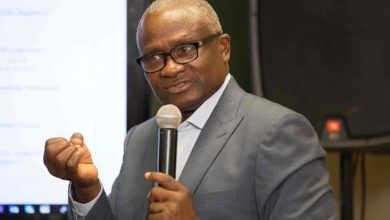
The Nigerian telecommunications sector is making a strong comeback, regaining its footing and contributing significantly to national GDP after suffering major setbacks from a foreign exchange crisis two years ago, according to the Nigerian Communications Commission (NCC).
Speaking during a media briefing in Abuja on Thursday, the Executive Vice Chairman of the NCC, Aminu Maida, said the industry had weathered the storm and is now on a renewed path to profitability, thanks to recent regulatory interventions and increased operator investments. Maida was represented at the session by Nnenna Ukoha, Acting Head of Public Affairs at the Commission.
Maida said that while revenues continued to grow during the forex crisis, telecom companies faced mounting foreign currency obligations that heavily eroded profits. This, he explained, adversely affected service quality across the industry.
“About two years ago, we observed that despite increasing revenues, some key operators were reporting significant losses due to heavy forex-related liabilities. These losses undermined network investments and led to deteriorating service quality,” Maida explained.
However, he noted that the recent tariff adjustment has played a pivotal role in stabilising operators’ finances, enabling them to reinvest in their infrastructure. This, he said, would soon translate to an improved user experience for subscribers nationwide.
“With the recent tariff adjustments, operators are now back on the path to profitability. This renewed stability is driving fresh investments into their networks, which will directly improve the quality of telecom services across the country,” he added.
According to Maida, the Commission expects the volume of industry investment in 2025 to surpass that of the previous two years combined, marking a major recovery phase for a sector critical to Nigeria’s digital economy.
Fibre Cuts, Vandalism Still Hampering Growth
Despite the optimism, Maida outlined persistent challenges, including fibre cuts, infrastructure vandalism, and Right of Way (RoW) issues. He revealed that 147 fibre cut incidents were recorded in a single week in May 2025, highlighting the vulnerability of telecom infrastructure.
To tackle these issues, the NCC is collaborating with the Nigerian Governors Forum and the Federal Ministry of Works to streamline RoW processes. A Memorandum of Understanding is expected to be signed soon, aimed at protecting underground fibre lines from damage during road construction.
In a tougher stance against infrastructure sabotage, the NCC is also partnering with the Attorney General’s Office and the Nigeria Security and Civil Defence Corps (NSCDC) to prosecute individuals involved in fibre theft and vandalism. Maida said the Commission is prepared to “name and shame” perpetrators as a deterrent.
Telecom Sector: A Strategic Asset
Maida reiterated the strategic role of telecommunications in supporting Nigeria’s national security, economic development, and social welfare goals. He said a robust and secure telecom infrastructure is vital for building a digitally enabled society.
He also assured the public that the NCC would continue to make consumer-focused decisions, ensuring that policies and regulations serve the best interests of users.
On Pricing and USSD Charges
Addressing concerns over service pricing, Maida clarified that all telecom tariffs, including USSD charges, are based on detailed cost analysis. He said the ₦6.98 USSD fee per airtime recharge was not arbitrary but the result of a thorough cost-oriented study.
“We are committed to ensuring that all rates remain fair, cost-justified, and consumer-friendly. Protecting Nigerian consumers from arbitrary pricing remains a core priority of the NCC,” he said.





